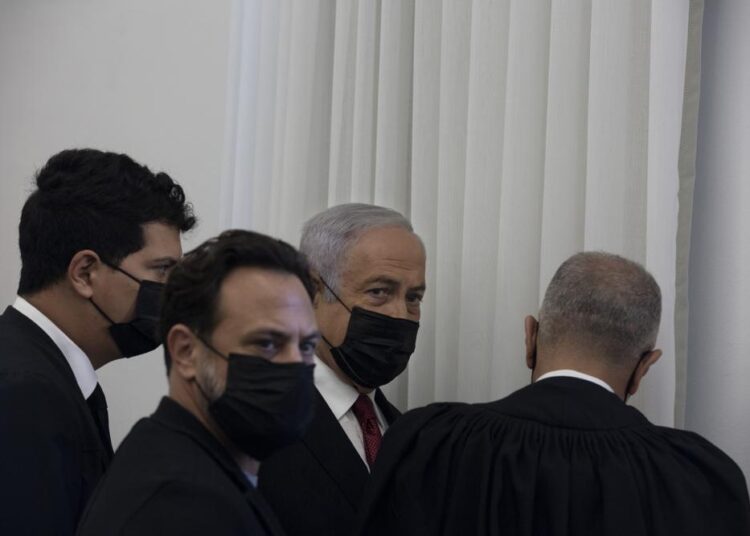JERUSALEM — A one-time confidante to Benjamin Netanyahu began testifying against him Monday in the former Israeli prime minister’s corruption trial in Jerusalem.
Nir Hefetz, a former spokesman for Netanyahu, is a key prosecution witness expected to deliver critical testimony in the trial, which revolves around accusations that Netanyahu committed fraud, breach of trust and accepted bribes. The former premier, now opposition leader, denies any wrongdoing.
Hefetz left a long career in journalism in 2009 to work as a spokesman for Netanyahu’s government, and in 2014 became the Netanyahu family’s spokesman and adviser. In 2018, after he was arrested in connection with one of Netanyahu’s corruption cases, Hefetz signed a state’s witness deal and provided investigators with recordings of conversations with Netanyahu and his family.
His testimony was delayed by a week after Netanyahu’s defense attorneys requested time to review new evidence. The information presented last week alleged that Netanyahu’s wife, Sara, had accepted an expensive bracelet as a gift from two billionaire friends, Hollywood producer Arnon Milchan and Australian billionaire James Packer.
Netanyahu appeared in the Jerusalem District Court Monday morning flanked by fellow Likud party politicians.
He’s the defendant in three separate cases. The first alleges that Netanyahu received gifts worth hundreds of thousands of dollars from wealthy friends, including Milchan and Packer.
In the second case, Netanyahu is accused of orchestrating positive coverage in a major Israeli paper in exchange for promoting legislation that would have harmed the news outlet’s chief rival, a free pro-Netanyahu daily.
The third, nicknamed Case 4000, alleges that Netanyahu promoted legislation worth hundreds of millions of dollars to the owner of Israeli telecom giant Bezeq in exchange for positive coverage on its Walla news site.
In his opening testimony, Hefetz said that Netanyahu was a “control freak” when it comes to his public image, and that “his control over everything relating to media matters and in his social media channels could not be higher.”
The former prime minister long rejected calls to step down from the country’s leadership after he was indicted in 2019. He used the podium as prime minister to repeatedly lash out at law enforcement, the media and the courts for launching a “witch-hunt” against him.
His trial formally began in 2020, while the country was embroiled in a two-year-long political crisis that saw four repeated elections, with voters deadlocked over Netanyahu’s leadership and indictment. The trial is expected to take years.
Earlier this year, Netanyahu and his long-ruling Likud party were ousted from power after a coalition united in their opposition to the long-serving prime minister formed a government.






Discussion about this post